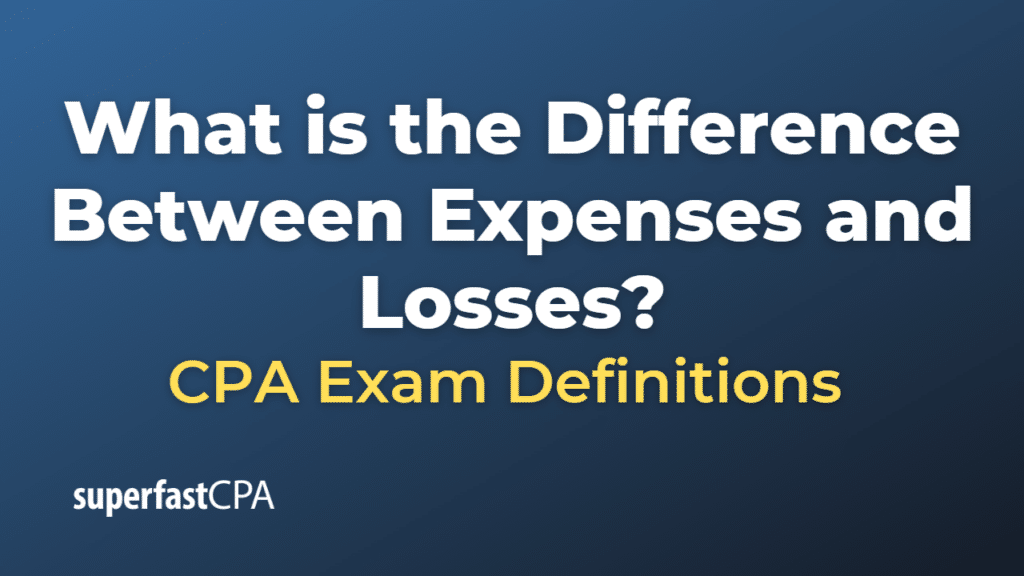Difference Between Expenses and Losses
Expenses and losses are both costs that a company incurs, and both reduce the company’s net income. However, they differ in terms of their nature, where they arise from, and how they are treated in financial reporting.
- Expenses: Expenses are the costs incurred during the ordinary course of business operations. These are necessary to generate the revenues of the business. Examples of expenses include salaries, rent, utilities, and depreciation. These are reported on the income statement and matched with the revenues they helped to generate, according to the matching principle of accounting.
- Losses: Losses are costs that are not directly related to the normal operations of the business. They usually result from incidental or non-recurring events. Examples of losses include loss on the sale of assets, loss from natural disasters, loss from lawsuits, and loss on investments. Losses also reduce a company’s net income and are reported separately from expenses on the income statement, typically under ‘Other Expenses’ or ‘Other Losses.
So, the main difference between expenses and losses is their connection (or lack thereof) to the core operations of the business. Expenses are the ordinary and necessary costs of running a business, while losses are irregular or extraordinary costs that aren’t directly tied to the business’s primary activities.
Example of the Difference Between Expenses and Losses
Expense Example:
Suppose a company, Alpha Inc., pays $1,000 every month for its office space lease. This $1,000 is an expense because it is a cost related to its ordinary business operations – providing office space for its employees to work. This rent expense would be recorded on the income statement and matched against the revenue earned in that period.
Loss Example:
Now, let’s say Alpha Inc. also owns a delivery van for transporting goods. One day, the van is involved in an accident and it’s beyond repair. Alpha Inc. must write off the remaining value of the van, say $5,000, which it had not yet depreciated. This write-off is considered a loss because it’s not part of the company’s core business operations and is due to an unusual, non-recurring event (the accident). This loss would be recorded on the income statement, typically under a category like “Other Losses.
In both examples, the company’s net income decreases by the amount of the expense or loss. However, the expense is associated with regular business operations (paying rent), while the loss is associated with an extraordinary event (the vehicle accident).













